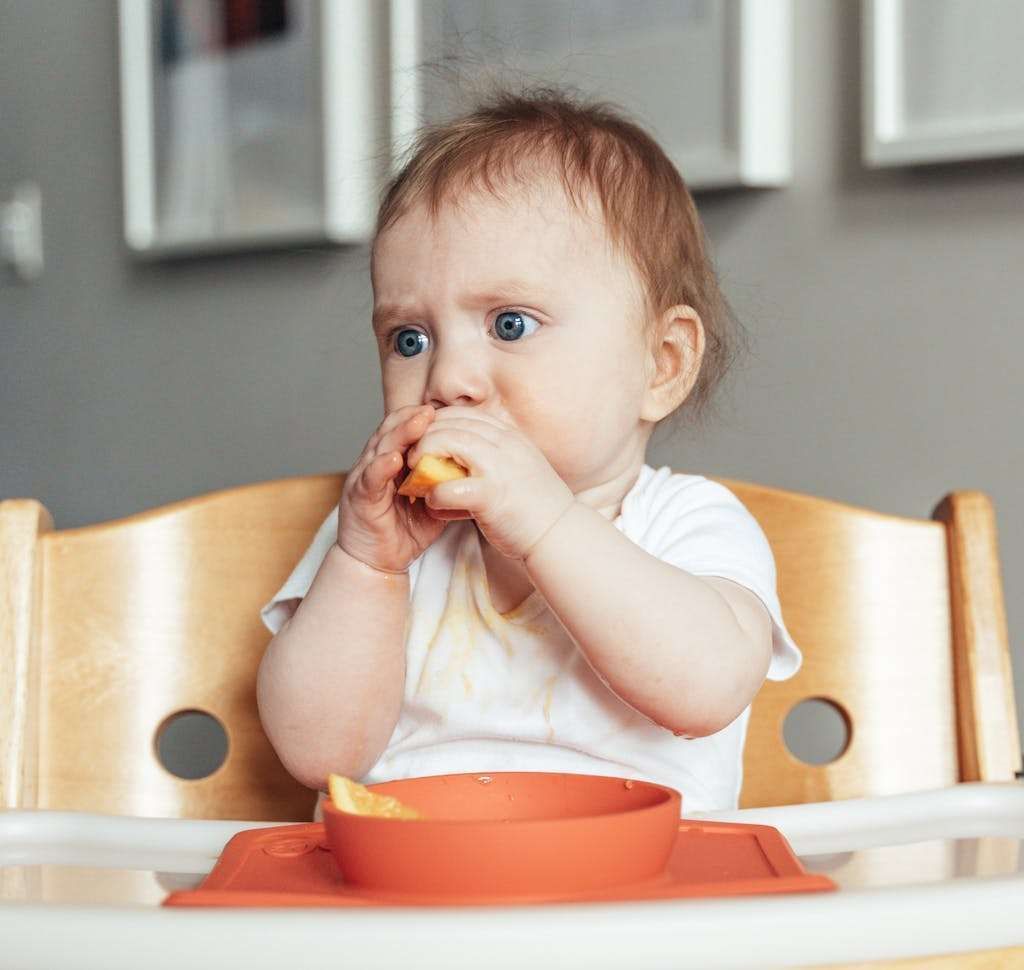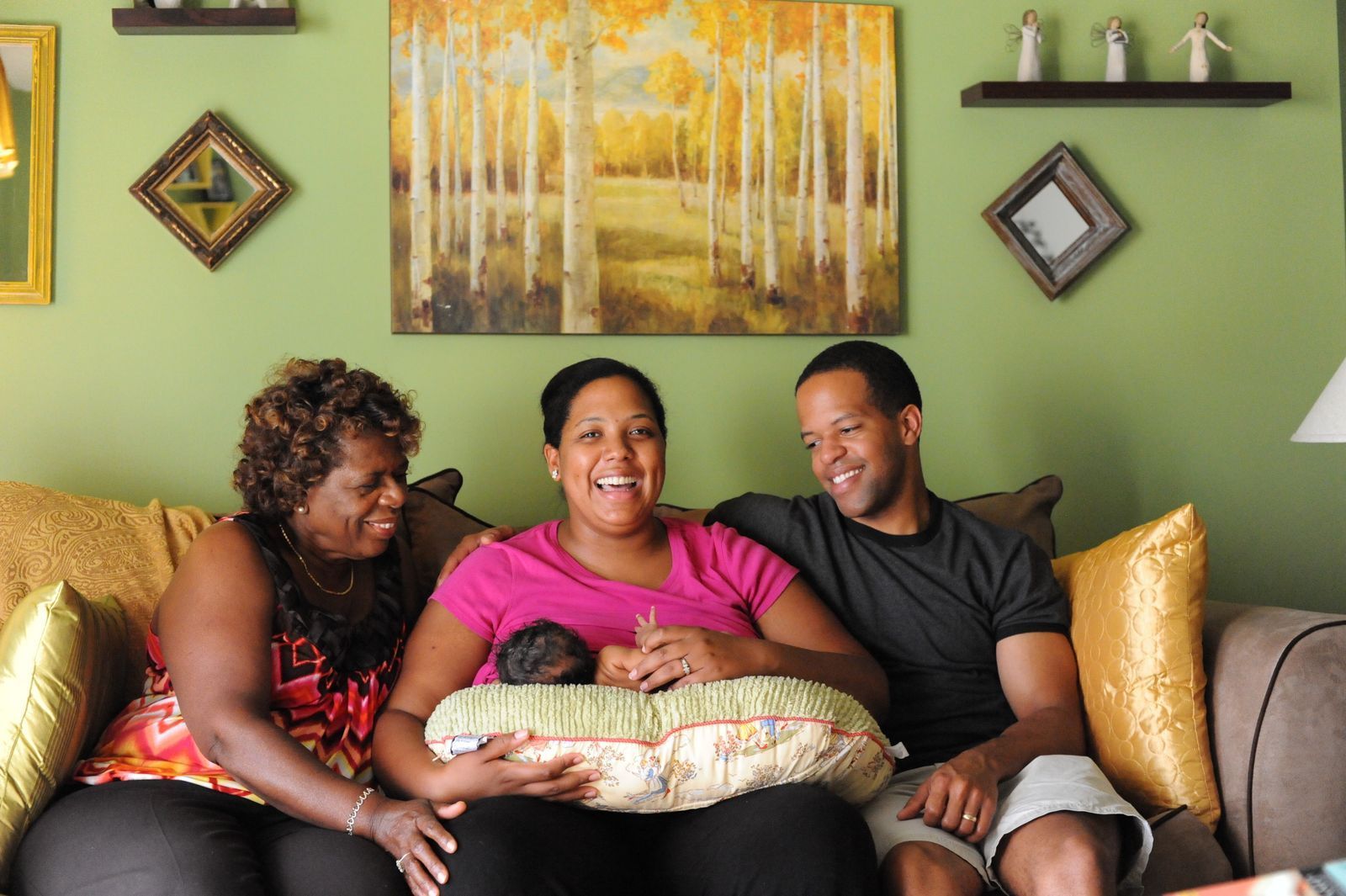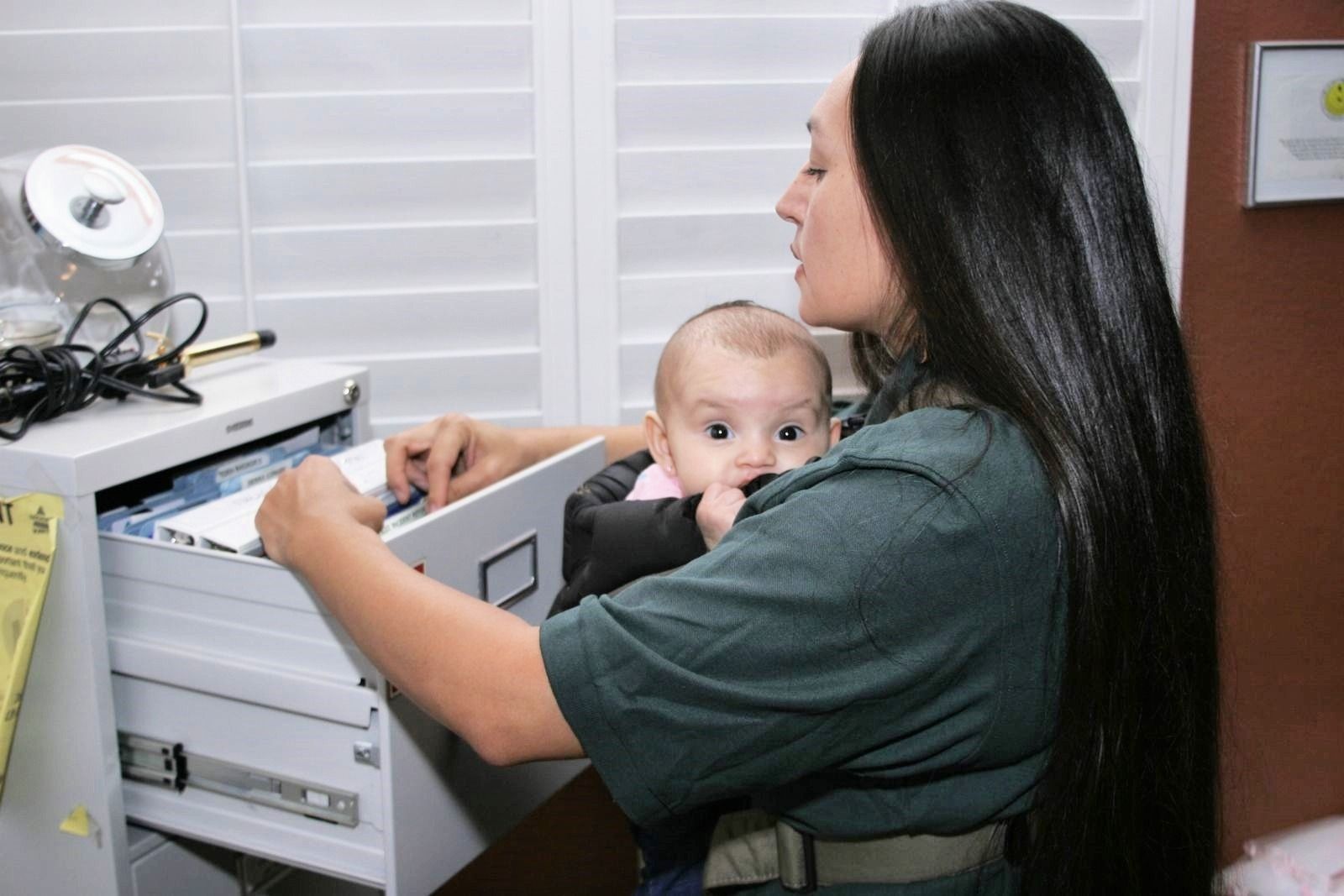What is Weaning and When Does it Usually Begin?
Weaning is a process, and it starts when your baby begins eating any solids and ends when your baby is no longer using human milk as their only source of nutrition. This usually takes place around 6 months when babies start showing interest in eating solid foods and have developed the skills needed to sit up and grasp food.
The American Academy of Pediatrics recommends the following:
| AGE | RECOMMENDATION |
|---|---|
| 0 - 6 Months | Exclusive breastfeeding |
| Around 6 Months | Continue to breastfeed and begin introducing solid foods |
| 12 Months and Older | Continue to breastfeed until you and your baby decide |

Take Your Time
It is important to remember that there is no reason to rush solid foods because human milk or human milk and infant formula (if baby is a combination feeder) will remain the main part of the baby’s diet throughout the first 12 months. The transition and completion of the weaning process can and should take many months or even years to complete.
When should I start my baby on solid foods?
Babies may be ready to start solid foods when they display signs of readiness, such as:
- Ability to sit in a high chair and hold their heads up without support
- Showing interest in foods by watching you eat, reaching for food, and opening their mouths when food gets close
- Being able to move food from the front to the back of their mouth without pushing it out of their mouth with their tongues
How do I begin to give solid foods?
You can slowly start offering your baby a teaspoon or two of solid foods starting once a day and then increasing to twice a day.
- Speak to your baby’s health care provider or your WIC nutritionist about which foods to introduce first.
- Start by feeding one new food at a time rather than several foods together and offer that food for several days in a row. Starting new foods one at time is important in helping you identify which one is a problem if the baby has an allergic reaction. Signs of an allergy include fussiness, runny nose, diaper rash, ear infections and upset stomach.
- You can make your own baby foods by mashing cooked fruits and vegetables or soft raw foods, like a banana. You can also buy commercial baby food. However, homemade foods can be made without added salt, sugar or other unnecessary ingredients. Some older babies enjoy feeding themselves and will like eating finger foods such as a ripe banana stick, a soft piece of broccoli or small pieces of soft meat.
For more information on when and how to start solids, click here.
When will my baby wean completely?
Once you start solids, you have begun the process of weaning your baby from human milk. If allowed to wean by themselves (baby-led weaning), many babies will naturally wean from human milk feeding during their second or third year. They will gradually show less interest in it.
What steps should I take if I want to wean or stop breastfeeding?
Slow and gradual weaning is best to allow your baby to adjust to both the loss of closeness of nursing and the changes to their diet. Slow weaning is also best for you so that your body can gradually adjust and decrease your milk supply and avoid discomfort. Sudden weaning is rarely necessary, except occasionally for medical reasons. Speak to your pediatrician or a lactation consultant for more information. If your baby is less than 12 months old when you decide to wean, you will need to substitute infant formula for your milk. Consult with your physician or WIC nutritionist for guidance on which infant formula to use.
- Begin by noting the times of day and night that your baby nurses.
- Pick one feeding and substitute formula at that feeding for several days in a row. Then pick another feeding and feed formula for several days.
- Pick the feedings that your baby likes the most, such as the first one in the morning or the last one in the night as the last feeding you eliminate.
This gradual weaning method will usually take 3-4 weeks or more depending on your baby’s age and feeding patterns. Full baby-led weaning can take months or years based upon both you and your baby’s interest in continuing nursing. On the other hand, some parents decide to start the weaning process sooner. This is known as parent-led weaning. Weaning is a personal decision between you and your baby. If your breasts feel overly full while weaning, contact a lactation consultant in your county for support.
How can I help comfort my baby during the weaning process?
Offer your baby extra attention, hugs, and cuddling during this time. Engage your baby in other playful and enjoyable activities. If your baby insists on nursing, you can allow it for a shorter than usual time. Offer other foods, snack and drinks. Ask your partner or other family members to help with distracting the baby. It may also help to change some of the normal daily routines. For example, you may have to avoid sitting with your baby in the chair that you normally breastfeed or chest feed in.
Keep your plan flexible in case an unexpected situation arises, such as baby illness. You can always resume the weaning when your baby feels better.
How can I keep myself comfortable during weaning?
If your breasts feel overly full or uncomfortable, you can use hand expression or a breast pump to remove some milk from your breast until you feel more comfortable, but not empty of milk. Wearing a comfortable bra can provide needed support.
If your breasts feel overly full while weaning, contact a lactation consultant in your county for support.
Like your baby, you may feel emotional during weaning. Give yourself grace, do activities that you enjoy and keep your baby close. You may need these baby cuddles to soothe yourself too as you adjust to this new phase of your parenting journey.
Is my baby or toddler getting too old for breastfeeding?
It is normal and healthy for babies to nurse until 12 months of age or even longer. Sometimes, well-intentioned family members, friends and even healthcare providers will say that your baby doesn’t need to nurse anymore and that your milk doesn’t have any benefits past six months. This is not true. Human milk continues to provide vitamins and immunities that protect your child from illnesses. To learn more about the benefits of breastfeeding, click here.
Breastfeeding also continues to provide feelings of security and comfort that soothe your child after a skinned knee or other challenges of growing. Breastfeeding past one year does not make your child clingy or dependent. All children eventually wean. For support for breastfeeding past infancy, click here:





